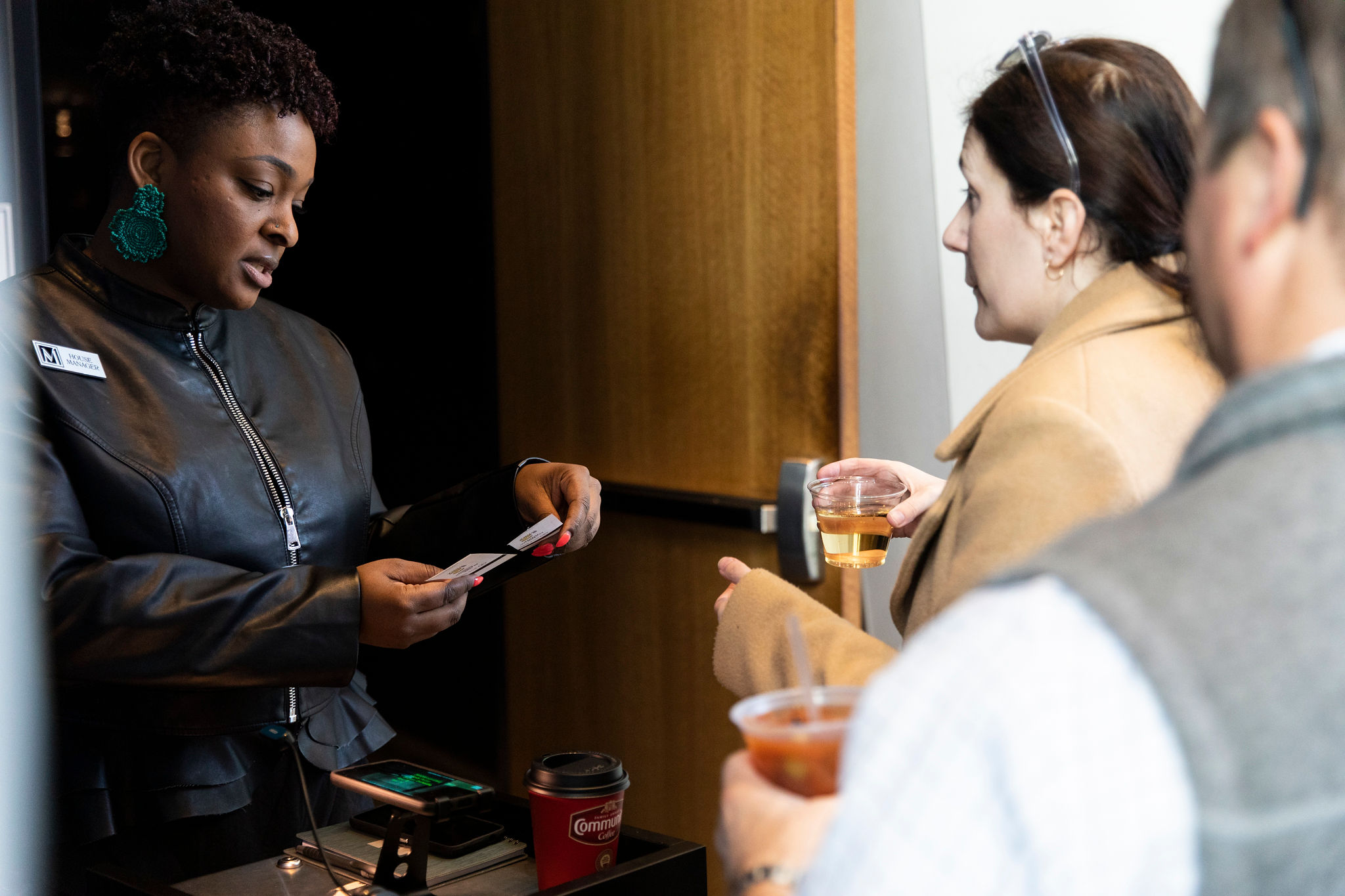
‘Universal themes’: Attendees, organizers reflect on the Baton Rouge Jewish Film Festival
Baton Rouge is only home to two synagogues. But this past weekend, there was a strong visage of Jewish heritage and celebration downtown.
After being delayed two months, the Baton Rouge Jewish Film Festival returned to the Manship Theatre over three nights last week. It was the first in-person event since 2020, after going virtual in 2021. Despite the year-long hiatus, the event still championed the same mission it held before the pandemic: to unite people through a common humanity, even for those audience members who aren’t Jewish.
“It’s a wonderful event that is both informative and entertaining,” says Julie Hoffman, one of the festival’s co-chairs. “And while it’s a Jewish festival that promotes Jewish films, the films have universal themes that appeal to the whole community.”
|
|
For Talwanga Sanders and her husband, attending a Jewish film festival was about just that: connection to culture. Exploring other cultures, especially ones different from hers, she says is an important part of developing as a human being.
“People need to be exposed to a lot of culture. When I lived on the East Coast, I went to stuff like this all the time,” Sanders says.
She explains that being a social studies teacher at La Belle Aire Elementary School has allowed her to bring an understanding of Jewish culture and religion to her students, something she hopes patrons of the festival take away, as well.
“It’s something I’m very proud of,” says Paula Hoffman, who is Sanders’ mother and a festival founder. “Our hope is that people who come to it learn that it’s not just Jewish things. In fact, Jewish things are like everything. People have relationships or not, things go well or badly; you don’t have to be Jewish for that.”
Even before the festival started, the theme of celebrating Jewish heritage and filmmaking in general was clear. A crowd that was mostly defined by older attendees, more than 100 gathered in the Manship Theatre on the festival’s first night on Wednesday, March 9. To kick things off a sizzle reel of impactful films ranging from Amelie to The Aviator, put together by co-chair and Sanders’ husband, Ara Rubyan, was presented, followed by a brief documentary about the first Torah brought to space, the aptly named Space Torah, by director Rob Cooper.
But the main event was a viewing of A Crime on the Bayou. The 2020 documentary hit closer to home than some expected, telling the story of Gary Duncan and Richard Sobol, a Black teenager from Plaquemines Parish and his Jewish attorney, respectively. With the help of Sobol, Duncan challenged racist Southern legal codes in the aftermath of integration and his unfair 1966 arrest for assault on a minor.
“It’s an important chapter of Louisiana history that’s frankly gone unnoticed by most of the population,” says audience member Robert Collins. “I knew about the legal principle that the Duncan case stood for. But I didn’t know the story behind it until the film.”
Collins and his wife, Rebecca, have attended the event dating as far back to its inception in 2007, feeling festivals like this are incredibly important to Baton Rouge’s culture. And though neither identify as Jewish, they also say they find “some of the best films at this festival” and are “interested in everybody’s story.”
For Shawn O’Brien and Ronald Couvillion, the festival connected them to a part of their past. O’Brien and Couvillion described themselves as “former shiksa and shegetz,” respectively, or non-Jews who married Jewish spouses.
O’Brien hopes that the festival teaches people something new, while providing some entertainment at the same time. Couvillion’s reasoning for attending was more connected to the subject of the festival.
“I like the Jewish people and appreciate what they stand for,” he says.
The festival, to Jewish attendees Elton and Doris Whites, is also a chance to teach people about the Jewish heritage and honor it. Doris notes that every year at least one film is dedicated to the Holocaust. This year, that film was Born in Auschwitz, a documentary telling the story of one of the only surviving children born in the concentration camp and the generational trauma therein.
The festival is also a tradition to bring Baton Rouge’s community together, the Whites add. The opportunity to see so many people they haven’t seen in over a year is what makes festivals like this so important, according to the Whites.
Still, others felt that the most important aspect of the event is helping attendees to understand their neighbors more deeply.
“You shouldn’t judge people by their religions, background or color,” Sanders says. “You should just love people as they are.”
Learn more about the films shown at this year’s festival here.
|
|
|

